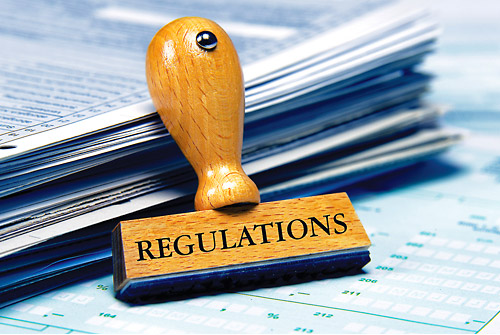Public Comment
The report will build upon public comments. The Office of Policy and Strategic Planning published a request-for-information asking eight broad questions about federal permitting and regulatory challenges. The comment period started March 7th and ended March 31st.
Regulatory reform always raises concerns about balance — that proposals could swing too far one way or another — either brushing aside issues of public health, safety, and environment or, conversely, being too timid, resulting in no substantive changes. Regulatory reform always raises concerns about balance — that proposals could swing too far one way or another — either brushing aside issues of public health, safety, and environment or, conversely, being too timid, resulting in no substantive changes. The Department of Commerce received 170 public comments. It is a rich resource, chock full of real world experiences. Consider this (edited) example, submitted anonymously:
Expanding our granite mine footprint has been excruciating. Five government entities (are) involved. The process has slowed to a crawl over the past four (!) years, and it seems that the government agencies can call the shots and drag their feet, however they please. We’ve hired lawyers at this point to finally put our foot down. Performing a perfectly environmentally safe and responsible mitigation has had so much red tape, it’s almost like the entities are either laughing at us or don’t want the building materials we produce.
This isn’t anti-regulatory or anti-environment. It’s a plea for help: make the process work so business can do its work.
NEDA’s Comments
The National Environmental Development Association (NEDA) is an industry group including Boeing, Eli Lilly, P&G, and seven other large manufacturers. NEDA’s comments, focusing on EPA regulations, provide an insider’s knowledge on the complexities — and consequences — of current Clean Air Act regulations. Consider:
- It can take 14 months to five years to receive a pre-construction permit, and that’s after the permit application is submitted and accepted.
- Many U.S. projects are withdrawn because this timetable is so much at odds with market realities.
- Projects stop despite advantages regarding low energy costs and the availability of raw materials.
Many people, even in business, think of regulations as something mildly irritable, mostly busywork. In fact, they are the purview of specialists, dealing with technical and legal issues well beyond everyday discussions. It’s the framework that allows, or stops, big-time economic expansion. That the system might work better is a tantalizing prospect.
Frequently, with regulatory reform, it is difficult to get affected businesses to take the time to identify specific burdens. With this initiative, the Department of Commerce has a strong basis for moving forward.


